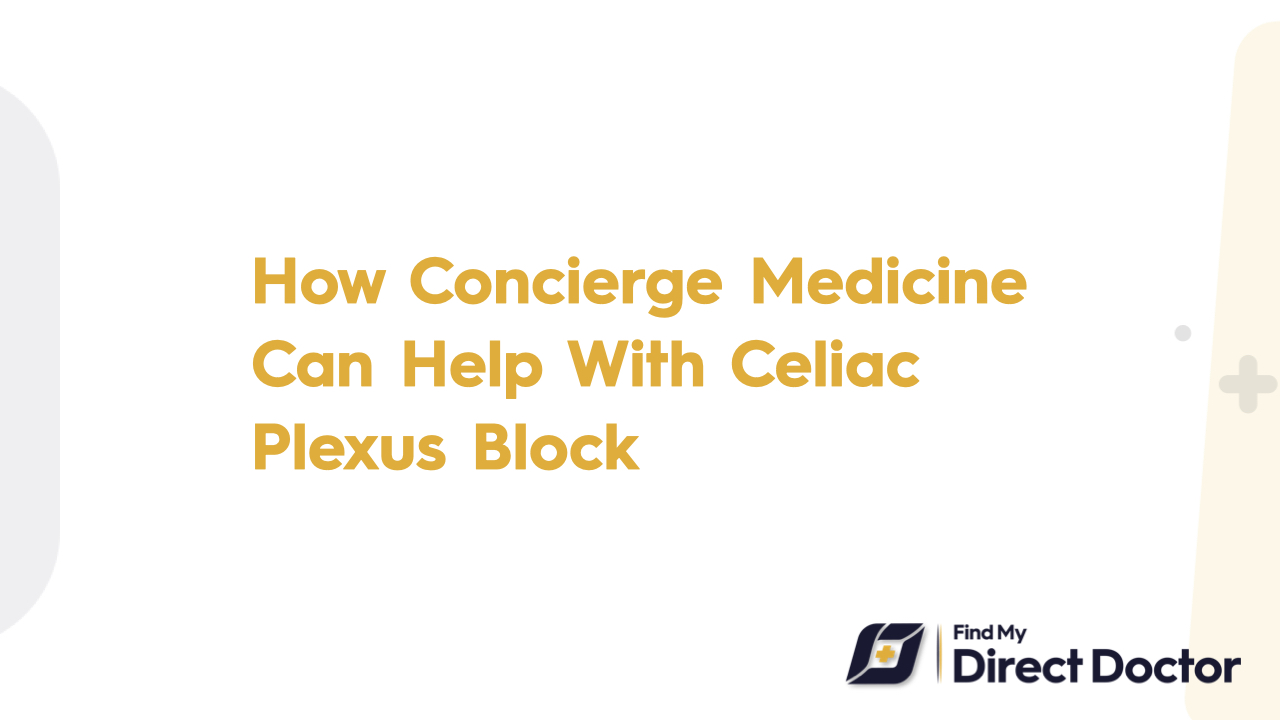



Chronic abdominal pain, which may be related to pancreatitis or abdominal cancer, can be managed with a Celiac Plexus Block, a specialized procedure. Patients with intractable abdominal pain are treated with this procedure by injecting a local anesthetic near their celiac plexus nerves, often in combination with a steroid. The goal is to block pain signals from reaching the brain, providing relief.

It is unique to manage the complexities of this procedure with concierge medicine. From pre-procedure consultations to post-procedure follow-ups, concierge physicians provide the highest level of attention to patients. By ensuring that patients are fully informed and comfortable throughout the procedure, this approach can help alleviate the anxiety often associated with such a delicate procedure.
Personalized Care and Attention: Concierge medicine patients receive more personalized and direct care. In addition to discussing the procedure, the concierge physician addresses concerns, and tailors the treatment to meet the pain management needs and medical conditions of each patient.
Concierge care patients often have a more flexible schedule, reducing the stress of scheduling multiple appointments. This is particularly beneficial for those undergoing procedures like Celiac Plexus Blocks, which may require careful timing and preparation.
Providing comprehensive care coordination: Concierge physicians often work closely with other specialists involved in patient care. All aspects of the patient's health are considered in this coordinated approach, and the procedure is seamlessly incorporated into the overall treatment plan.
Patients have direct access to their concierge physician, which enhances ongoing communication. This is crucial for procedures like Celiac Plexus Block, where patients might have concerns or questions during recovery.
Personalized Pre-Procedure Preparation: The concierge physician will work closely with the patient in advance of the Celiac Plexus Block to ensure they are prepared. In order to optimize outcomes, we review the patient's medical history, discuss the procedure in detail, and offer individualized instructions.
Following the procedure, the concierge physician provides ongoing support and monitoring to the patient. Follow-up visits are tailored to the recovery needs of patients, ensuring that any potential complications are promptly addressed, and the effectiveness of the block is monitored.
Concierge medicine permits a more holistic approach to pain management. In addition to the Celiac Plexus Block, the physician may recommend complementary therapies or medication adjustments.
Concierge care patients often have access to advanced pain management resources and the latest treatment options, ensuring that they receive the best care possible.
Ultimately, concierge medicine enhances both the preparation and recovery phases of Celiac Plexus Block by providing a highly personalized and patient-centered approach. A patient's quality of life and outcomes can be improved through tailored care, improved communication, and comprehensive support.